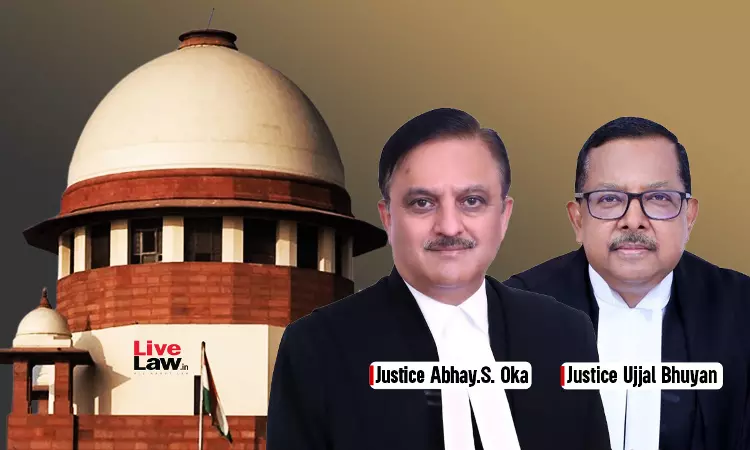- Home
- /
- Top Stories
- /
- Registration Of Transfer Document...
Registration Of Transfer Document Can't Be Refused On Ground That Vendor's Title Deeds Aren't Produced/Established: Supreme Court
LIVELAW NEWS NETWORK
7 April 2025 10:26 PM IST
It is not the function of the Sub-Registrar or Registering Authority to ascertain whether the vendor has title to the property.
The Supreme Court observed that the Registration Act, 1908 does not authorize the Registering Authority to deny registration of a transfer document on the ground that the vendor's title documents are not produced or that their title is unproven.Therefore, the Court struck down as unconstitutional Rule 55A(i) of the Tamil Nadu Registration Rules as inconsistent with the provisions of...
The Supreme Court observed that the Registration Act, 1908 does not authorize the Registering Authority to deny registration of a transfer document on the ground that the vendor's title documents are not produced or that their title is unproven.
Therefore, the Court struck down as unconstitutional Rule 55A(i) of the Tamil Nadu Registration Rules as inconsistent with the provisions of the Registration Act, 1908.
As per Rule 55A(i), the person seekig registration of a document was mandated to produce the previous original deed as per which he acquired title and encumbrance certificate. Unless this Rule is complied with, the document will not be registered.
A bench comprising Justice Abhay S Oka and Justice Ujjal Bhuyan struck down this rule saying that it was not within the mandate of the Sub-Registrar or Registering Authority under the 1908 Act to verify whether the vendor has valid title. Even if a person executing a sale deed or lease does not have title to the property, the registering authority cannot refuse to register the document, provided all procedural requirements are met and applicable stamp duty and registration fees are paid.
The Court noted that none of the Clauses (a) to (j) of Section 69 of the Registration Act provides for framing Rules conferring power on the registering authority to refuse registration of a document of transfer.
"No provision under the 1908 Act confers power on any authority to refuse registration of a transfer document on the ground that the documents regarding the title of the vendor are not produced, or if his title is not established," the Court observed.
The Court added :
"The registering officer is not concerned with the title held by the executant. He has no adjudicatory power to decide whether the executant has any title. Even if an executant executes a sale deed or a lease in respect of a land in respect of which he has no title, the registering officer cannot refuse to register the document if all the procedural compliances are made and the necessary stamp duty as well as registration charges/fee are paid. We may note here that under the scheme of the 1908 Act, it is not the function of the Sub-Registrar or Registering Authority to ascertain whether the vendor has title to the property which he is seeking to transfer. Once the registering authority is satisfied that the parties to the document are present before him and the parties admit execution thereof before him, subject to making procedural compliances as narrated above, the document must be registered.
The execution and registration of a document have the effect of transferring only those rights, if any, that the executant possesses. If the executant has no right, title, or interest in the property, the registered document cannot effect any transfer."
Noting that the Rule 55A(i) is inconsistent with the Registration Act, the Court declared it ultra vires the parent Act.
To give a brief factual background, the petitioner, claiming title based on an unregistered Will, presented a sale deed document before the concerned Sub-Registrar for registration of a property in his name. However, the Sub-Registrar refused to register the said document, stating that the legal heirs of the vendor were not mentioned therein and the petitioner had not established his title and ownership, as required under Rule 55A. Aggrieved, the petitioner filed a writ petition before the Madras High Court.
After being unsuccessful before the High Court, he approached the Supreme Court.
Case : K. Gopi v. The Sub-Registrar & Ors.
Citation: 2025 LiveLaw (SC) 402
Appearance: AOR Qurratulain, and Advocates Mohd. Parvez Dabas and Uzmi Jameel Husain for appellate; Sr Adv P.S. Raman, Advocate General of Tamil Nadu and AOR Sabarish Subramanian for State



